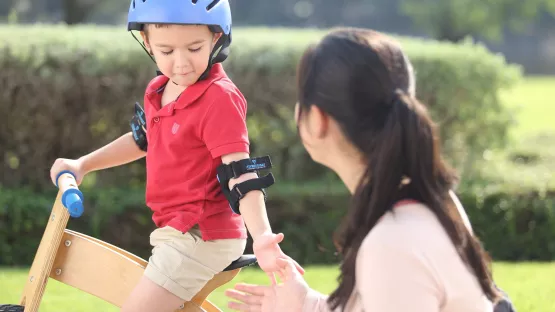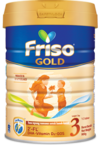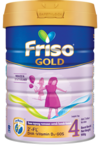Turning Mealtimes into Adventures: Home Meal Prep Ideas for Toddlers
Toddlers are little explorers, always on the lookout for new and excit.... read more

Every parent wants to make sure that their child is growing properly and hitting all their milestones, especially when it comes to physical development and mental development. You're excited to see them progress from walking to skipping and even running! Read on to learn the behaviours and motor skills development to look out for during early childhood, and what to expect from each age range.
Remember, while it's good to keep track of the milestones, watching a checklist too closely can result in unnecessary stress if your child isn't hitting them "on time". You should also talk to your child's healthcare provider if you have any concerns about their progress.
These are physical, mental and motor skill development markers that can be seen in your child as they grow older. Motor skills can be divided into two categories: gross and fine motor skills. Gross motor skills involve large muscle movements such as sitting, walking and jumping. Fine motor skills refer to the use of smaller muscles, such as grasping, opening containers and drawing. They are different for each age range, so take a look at the general list below of some of the cognitive and physical development activities your child might be doing at different ages throughout their childhood.
At this age, your child would start developing their gross motor skills and simple cognitive skills. They should be able to:
|
Motor Skills |
Cognitive skills |
|
Sit and stand without help |
Pretend play (like drinking from a cup) |
|
Push with their feet while sitting on a riding toy |
Say mama, papa, and a couple of other words |
|
Drink from a cup |
Understand simple commands |
|
Pick up a small item with their thumb and index finger |
Point at and identify simple objects and parts of the body |
|
Build a tower of 2-4 blocks |
Listen to a story |
|
Draw a line |
Recognise and label some colours |
At this age, your child’s clumsy “toddling” will turn into a smoother, more balanced walk. With it comes a whole lot more abilities that they're able to explore, such as the following:
|
Motor Skills |
Cognitive skills |
|
Run, jump and hop |
Understand the word "no" and stop accordingly |
|
Throw, catch and even kick a ball without losing balance |
Speak in sentences of 3 words or more |
|
Push themselves around on a riding toy |
Ask questions and stay focused for longer |
|
Turn a doorknob |
Knows their own name, age and sex |
|
Pick up objects while standing, without losing balance |
Can engage in cooperative play |
|
Flip through a book one page at a time |
Understand 2 step commands like, "Give me the toy and then get your socks" |
At this age, your child should have better balance and coordination. For example, they should be able to climb up the stairs without much assistance (but always with you watching). Here are other milestones to keep an eye out for:
|
Motor Skills |
Cognitive skills |
|
Throw a ball overhand with coordination |
Learn and sing simple songs |
|
Show improved balance and maybe hop on one foot |
Put together a sentence of 3-5 words in a sentence |
|
Easily place a small object in a small opening |
Know their own name, age and sex (boy/girl) |
|
Draw a circle |
Become less afraid when separated from mother or caregiver for short periods of time |
|
Pedal a tricycle |
May have an imaginary playmate |
|
Cut out a picture using scissors (under supervision) |
Increased understanding of time |
This stage marks one of the most active times of your kid’s childhood. At this age, your boisterous child will continue to refine their earlier skills. They're running faster, jumping higher, and they can even skip and start learning how to ride bicycles. They should also be able to do many of the following.
|
Motor Skills |
Cognitive skills |
|
Skip, jump and hop with good balance |
Can count to 10 and over |
|
Can balance on one foot (maybe also with their eyes closed) |
Has a vocabulary of more than 2,000 words |
|
Slowly masters playground activities like the jungle gym, see-saw, and swing without assistance |
Knows their telephone number |
|
Show interest in organised sports like football and basketball |
Can name the primary colours, and even more |
|
Button and unbutton clothes by themselves |
Improved math skills |
|
Can write letters and numbers, and draw shapes |
Asks deeper questions that address meaning and purpose |
While each child develops at a different rate, they all need the right nourishment to help their brain, muscles and body develop! Try Friso® Gold Step 3 and Friso® Gold Step 4. Made with milk and processed only once with LocNutri™ Technology to preserve more than 90% of nutrients, Friso® Gold combines the magical goodness of nature with science to bring you easy-to-digest milk with more than 50 essential3 nutrients to help your child grow stronger from the inside. Friso® Gold now with NOVAS™ Signature Milk that has naturally small molecules and a soft structure, and it also has no added flavour for easy digestion so your child can be stronger inside. Good digestion is important to help your child absorb the nutrients that fuel their mental and physical developmental milestones during their childhood. For more information, you can also call the Friso® Gold Malaysia Care Line at 1800-81-3854 for support, available every Monday to Friday, from 8.30am to 4.30pm. You may also request a sample: Try free 1-day trial pack or 50% off for 6 days-trial pack today!.
Try Friso Gold — buy direct at Friso Gold Malaysia
Reference:


